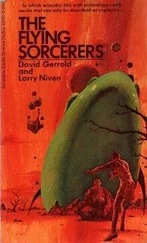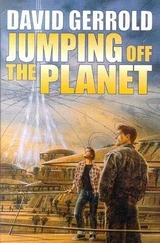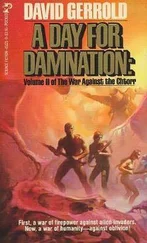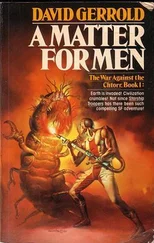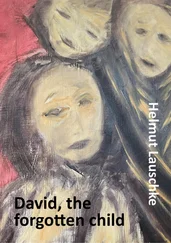David Gerrold - The Martian Child
Здесь есть возможность читать онлайн «David Gerrold - The Martian Child» весь текст электронной книги совершенно бесплатно (целиком полную версию без сокращений). В некоторых случаях можно слушать аудио, скачать через торрент в формате fb2 и присутствует краткое содержание. Год выпуска: 1994, Жанр: Фантастика и фэнтези, на английском языке. Описание произведения, (предисловие) а так же отзывы посетителей доступны на портале библиотеки ЛибКат.
- Название:The Martian Child
- Автор:
- Жанр:
- Год:1994
- ISBN:нет данных
- Рейтинг книги:3 / 5. Голосов: 1
-
Избранное:Добавить в избранное
- Отзывы:
-
Ваша оценка:
- 60
- 1
- 2
- 3
- 4
- 5
The Martian Child: краткое содержание, описание и аннотация
Предлагаем к чтению аннотацию, описание, краткое содержание или предисловие (зависит от того, что написал сам автор книги «The Martian Child»). Если вы не нашли необходимую информацию о книге — напишите в комментариях, мы постараемся отыскать её.
(r) copyright 1994, by David Gerrold. All rights reserved.
David Gerrold, CIS: 70307,544
Nebula and Hugo Awards winner
The Martian Child — читать онлайн бесплатно полную книгу (весь текст) целиком
Ниже представлен текст книги, разбитый по страницам. Система сохранения места последней прочитанной страницы, позволяет с удобством читать онлайн бесплатно книгу «The Martian Child», без необходимости каждый раз заново искать на чём Вы остановились. Поставьте закладку, и сможете в любой момент перейти на страницу, на которой закончили чтение.
Интервал:
Закладка:
"It's not the research," Alice said. "It's the fact that you did it. That demonstrates your willingness to find out what the child needs so you can provide it."
"I wish I could believe you," I said.
She looked deeply at me. "What's the matter?"
"What if I'm really not good enough?" I said. "That's what I'm worried about — I can't shake that feeling."
"Oh, that — " she said, lightly. "That's normal. That's the proof that you're going to do okay. It's only those parents who don't worry who need to."
"Oh," I said. And then we both started laughing.
She hugged me then. "You'll do fine. Now let's go home and call Mom before she busts a kidney from the suspense."
Two centuries later, although the calendar insisted otherwise, Ms. Bright called me. "We've made a decision. If you're still interested in Dennis, we'd like to arrange a meeting — " I don't remember a lot of what she said after that; most of it was details about how we would proceed; but I remember what she said at the end. "I want to tell you the two things that helped us make the decision. First, all that research you did shows that you're committed to Dennis's needs. That's very important in any adoption, but especially in this one. The other thing was what you said at the end of the meeting — about understanding his need to be a Martian. We were really touched by your empathy for his situation. We think that's a quality that Dennis is going to need very much in any family he's placed in. That's why we decided to try you first."
I thanked her profusely; at least, I think I did; I was suddenly having trouble seeing. and the box of tissues had gone empty.
I met Dennis three days later, at the Johnson Group Home in Culver City. He was one of six children living-at the facility; four boys, two girls. Because the caseworkers didn't want him to know that he was being auditioned, I would be introduced as a friend of the group home parents.
The child who came home from school was a sullen little zombie, going through the motions of life. He walked in the door, walked past me with no sign of recognition, and headed straight to his room. I said, "Hi." He grunted something that could have been "H'lo" and kept on going. For a moment, I felt somehow cheated. I recognized him, why hadn't he recognized me? And then I had to remind myself with a grin that I was the grownup, not him. But, after a bit, he came out from his retreat and asked me to play electric hockey.
For the first few minutes, he was totally intent on the game. I didn't exist to him. Then I remembered an exercise from one of my communications courses — about simply being with another person. I stopped trying so hard to do it right, and instead just focused my attention on Dennis, letting it be all right with me for him to be exactly the way he was.
And yet, I couldn't turn off the analytical part of my mind. After reading all those reports, and hearing all the opinions of the caseworkers, I couldn't help but watch for evidence. I couldn't see it. None of it. All I could see was a child. And then that thing happened that always happens to an adult who is willing to play with a child. I rediscovered my own childhood again. I got involved in the game, and very shortly I was smiling and laughing when he did, returning the same delight and approval at every audacious play. And that's when it happened. He began to realize that there was a real human being on the opposite side of the game board. Something sparked. He started reacting to me instead of to the puck. I could feel the sense of connection almost as a physical presence.
Then, abruptly, it was time for him to do his chores. We loaded up the wagon with the cans from the recycling bin and walked them over to the nearby park. We talked about stuff. He talked, I listened. Sometimes I asked questions, sometimes he did. On the way back, he insisted that I pull the wagon so he could ride in it. By now, he was glowing. He was the boy in the photograph.
When we got back to the group home, however, the other children had arrived home from school and were already playing together in the back yard. As soon as he saw them, Dennis broke away from me and ran to the back of the yard. He flung himself into the comer of a large old couch and curled up in a ball. He was as apart from the other children — indeed the whole world — as it was possible to get.
What had suddenly triggered his unhappiness? Was it the thought that now that there were other children to play with, I would reject him? Did he have to reject me first? Or was there something else going on? From inside the house, I watched him as he sat alone. He was a very unhappy little boy. And he had stopped glowing. At that moment, I knew I couldn't leave him here. Whatever other problems he might have, my commitment was bigger. Or so I believed.
The group home parents invited me to stay to dinner with the children. I hadn't planned on it, but all the children insisted that I stay, so I did, specifically making a point of sitting next to Dennis. He didn't talk at all, he was subdued, as if he was afraid of losing something that he wanted very much — or maybe that was only my perception. He ate quietly and timidly. But then Tony, one of the more excitable children, suddenly piped up, "Do you know what Dennis said?"
Tony was sitting directly across from me. He had that look of malicious mischief common to children who are about to betray a confidence. "What?" I asked, with a queasy foreboding.
"Dennis said he wishes you were his dad." Even without looking, I could see that beside me, Dennis was cringing, readying himself for the inevitable politely worded rejection.
Instead, I turned to Dennis, focusing all my attention on him, and said, "Wow, what a great wish. Thank you!" There was more I wanted to add, but I couldn't. Not yet. The "game plan" required me to be Dennis's "special friend" for at least six weeks before I made any kind of commitment to him. He couldn't know that I had the same wish he did. I felt cheated at not being able to add, "So do I." But I understood the rationale, and I would follow it.
"Better watch out," Tony said. "He might make it a Martian wish, and then you'll have to."
At the time, I didn't understand what Tony had meant. So I forgot about it.
The next time I heard about Martians happened thirteen months later.
I was in Arizona, at a party at Jeff Duntemann's sprawling house. Jeff is a two-time Hugo nominee who gave up science fiction to write books about computer programming. Apparently, it was far more profitable than science fiction; now he was publishing his own magazine, PC-Techniques. I write a regular column for the magazine, an off-the-wall mix of code and mutated zen. It was the standing joke that my contribution to the magazine was the "Martian perspective."
I was sitting on the patio, watching Dennis splash enthusiastically across the pool. He was doing cannonballs into the deep end. A year ago, I couldn't pry him loose from the steps in the shallow end; he wouldn't even let me teach him how to dog-paddle — now he was an apprentice fish. He spent more time swimming across the bottom of the water than the top.
A year ago, he'd been a waif — capable of joy, the picture proved that — but more often sad, uncertain, alienated, and angry. A year ago, he'd told his caseworker, "I don't think God listens to my prayers. I prayed for a dad and nothing happened." On the day he moved in, I asked his caseworker to remind him of that conversation and then tell him that sometimes it takes God a little while to make a miracle happen.
A miracle — according to my friend Randy MacNamara — is something that wouldn't have happened anyway. Now, after the fact, after the first giddy days of panic and joy, after the days of bottomless fears, after the tantrums and the testing, after a thousand and one peanut butter and jellyfish sandwiches, I understood what he meant. And more. A miracle takes real commitment. It never happens by accident. I'd had other miracles happen in my life — one which I'd written about, one which I may never write about — but this one was the best. I had the proof of it framed on my wall.
Читать дальшеИнтервал:
Закладка:
Похожие книги на «The Martian Child»
Представляем Вашему вниманию похожие книги на «The Martian Child» списком для выбора. Мы отобрали схожую по названию и смыслу литературу в надежде предоставить читателям больше вариантов отыскать новые, интересные, ещё непрочитанные произведения.
Обсуждение, отзывы о книге «The Martian Child» и просто собственные мнения читателей. Оставьте ваши комментарии, напишите, что Вы думаете о произведении, его смысле или главных героях. Укажите что конкретно понравилось, а что нет, и почему Вы так считаете.

